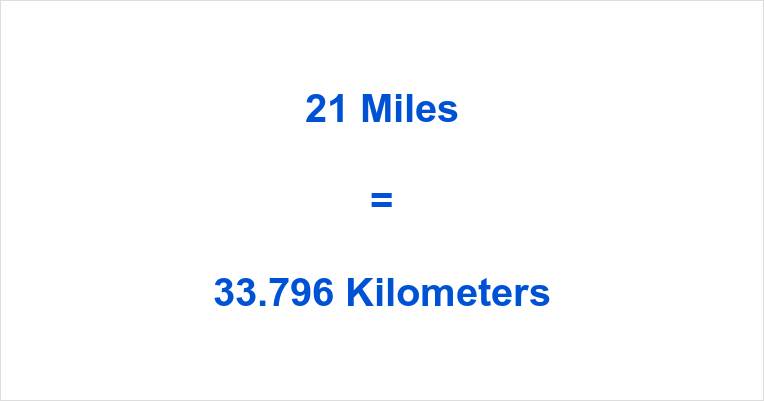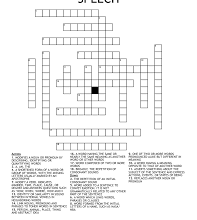Key points about 21 km to miles

Welcome 21 km to miles to our blog post where we are going to unravel the mystery of converting 21 kilometers to miles. Whether you’re a seasoned traveler, a fitness enthusiast, or simply curious about unit conversions, knowing how to convert kilometers to miles is a valuable skill. In this article, we will guide you through the process and help you understand the significance of understanding this conversion rate. So buckle up and let’s delve into the world of measurements!
How to convert 21 kilometers to miles
So you’ve got a distance of 21 kilometers and you want to know how many miles that equates to. Well, fear not! Converting kilometers to miles is actually quite straightforward once you know the conversion rate.
To convert kilometers to miles, all you need to do is multiply the number of kilometers by 0.62137119. That’s it! So if we apply this formula to our 21-kilometer dilemma, we simply multiply 21 by 0.62137119.
The result? Drumroll please…13.05 miles! Yes, that’s right folks, when you travel a distance of 21 kilometers, it is equivalent to approximately 13.05 miles in the good ol’ imperial system.
Now that wasn’t too complicated now, was it? Armed with this knowledge, converting distances between kilometers and miles will be a breeze for your future adventures or everyday conversions.
Remember though, accuracy matters when converting between units of measurement. Always double-check your calculations and use precise conversion rates for optimal results!
So there you have it – a quick guide on how to convert those pesky kilometer measurements into their mile counterparts. Time to put your newfound knowledge into practice and start exploring the world one mile at a time!
The importance of knowing the conversion rate
Knowing the conversion rate between different units of measurement is essential in our daily lives. It allows us to accurately understand and compare quantities, ensuring that we communicate effectively across different systems. One such important conversion rate is between kilometers and miles.
Understanding how many miles are equivalent to a given distance in kilometers can be extremely useful, especially when traveling or communicating with people from countries that use the imperial system. This knowledge enables us to have a better grasp of distances and make informed decisions based on accurate measurements.
For instance, if you’re planning a road trip through Europe, knowing the conversion rate from kilometers to miles will help you estimate travel times and distances more precisely. Similarly, if you come across an article or map mentioning distances in kilometers but are more familiar with miles, understanding the conversion rate will allow you to comprehend the information without confusion.
Furthermore, being aware of this conversion helps expand our horizons by enabling us to engage with content from around the world seamlessly. Whether it’s reading international news articles online or following fitness programs created by trainers abroad – having a clear understanding of conversions ensures that we don’t miss out on valuable information due to measurement discrepancies.
Knowing the conversion rate between kilometers and miles is crucial for effective communication and comprehension across different systems of measurement. It empowers us with accurate insights into distance-related matters while broadening our access to global content effortlessly. So next time you encounter a value in kilometers, take advantage of your knowledge about converting it into miles!
What is the difference between a kilometer and a mile?
What is the difference between a kilometer and a mile? Many people may wonder about this, especially when it comes to understanding different units of measurement. The main difference between a kilometer and a mile lies in their origins and the countries that use them.
A kilometer is derived from the Greek word “khilioi metron”, meaning one thousand measures. It is widely used in most countries around the world, except for a few exceptions like the United States and some parts of Britain. One kilometer is equal to 1,000 meters or approximately 0.62 miles.
On the other hand, a mile is an English unit of length that dates back to ancient Roman times when roads were measured using mille passuum or “a thousand paces”. In modern usage, one mile equals 5,280 feet or approximately 1.61 kilometers.
The choice between using kilometers or miles often depends on which country you are in and what system of measurement they follow. While many countries have adopted the metric system with kilometers as their primary unit of distance, others still prefer to use miles as their standard measure.
Understanding this difference can be particularly useful when traveling abroad or reading international maps where distances are commonly expressed in kilometers rather than miles. It allows you to accurately interpret distances without confusion or miscalculation.
Knowing the distinction between kilometers and miles helps facilitate communication across borders and enhances our ability to navigate through unfamiliar territories seamlessly. Whether we’re discussing road trips, marathon races, or simply estimating how far we’ve traveled – having an awareness of both units ensures clarity and precision in our measurements
How far is 21 km in miles?
When it comes to measuring distance, different countries use different units. In the United States and a few other countries, people commonly use miles to measure distance. However, in most of the world, kilometers are the standard unit of measurement.
So how far is 21 km in miles? To convert kilometers to miles, you can simply multiply the number of kilometers by 0.62137. So for 21 km, we would multiply it by 0.62137 to get approximately 13.05 miles.
It’s important to know this conversion rate because it allows you to easily understand distances when traveling or reading maps that use different units of measurement. Being able to quickly convert between kilometers and miles can help prevent any confusion or miscalculations while on the road.
The difference between a kilometer and a mile lies in their origins and usage around the world. A kilometer is based on the metric system and is used as a unit of length in most countries globally except for three: Myanmar (formerly Burma), Liberia, and the United States.
On the other hand, a mile originated from ancient Rome where they measured one thousand paces using two steps with each step being about five feet long – hence “mille passus” which means one thousand paces in Latin became ‘mile.’
Understanding these differences might not seem important at first glance but having knowledge about them can come in handy during your travels or if you find yourself discussing distances with someone from another country.
Knowing how far 21 km is in miles helps provide clarity when dealing with measurements across different regions of the world. By multiplying 21 km by 0.62137, we find that it is approximately equal to 13.05 miles.
Conclusion
Conclusion
Knowing how to convert kilometers to miles is a valuable skill that can come in handy in many situations. Whether you’re planning a road trip, participating in a race, or simply trying to understand distances on international maps, being able to quickly and accurately convert between these two units of measurement is useful.
In this article, we have explored the key points about converting 21 kilometers to miles. We discussed the importance of knowing the conversion rate and understanding the difference between a kilometer and a mile. We also determined that 21 km is approximately equal to 13.05 miles.
By mastering this conversion, you can easily navigate distances no matter which unit of measurement is used. So next time you encounter measurements in kilometers or miles, you’ll be well-equipped to make accurate calculations.
Remember, practice makes perfect! The more familiar you become with conversions like these, the easier it will be for you to tackle any distance-related challenge that comes your way.
So go ahead and impress your friends with your newfound knowledge of converting kilometers to miles. Happy calculating!




